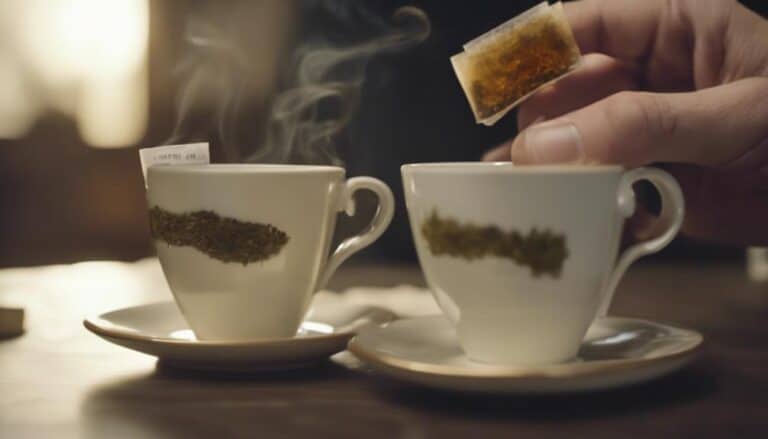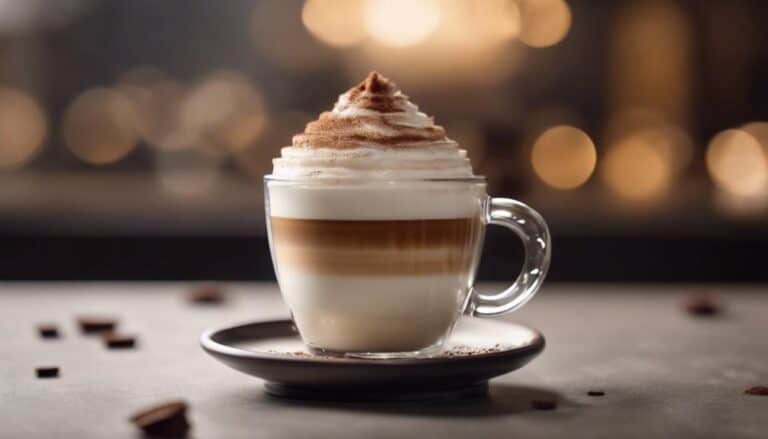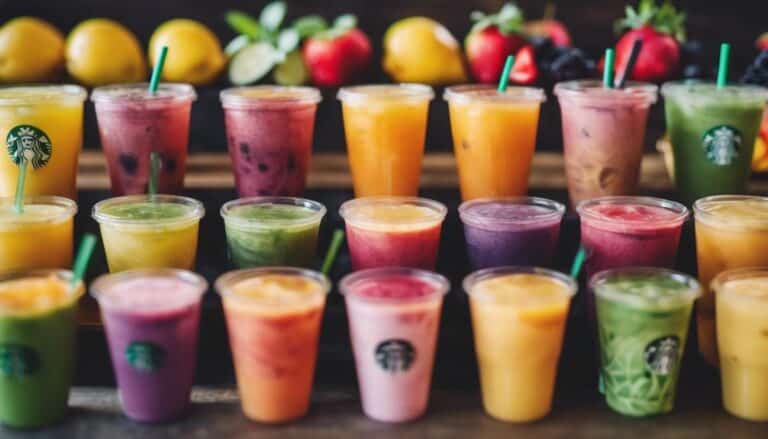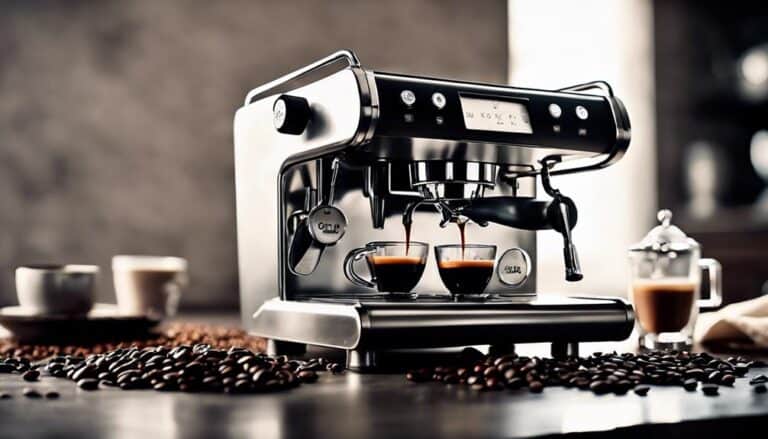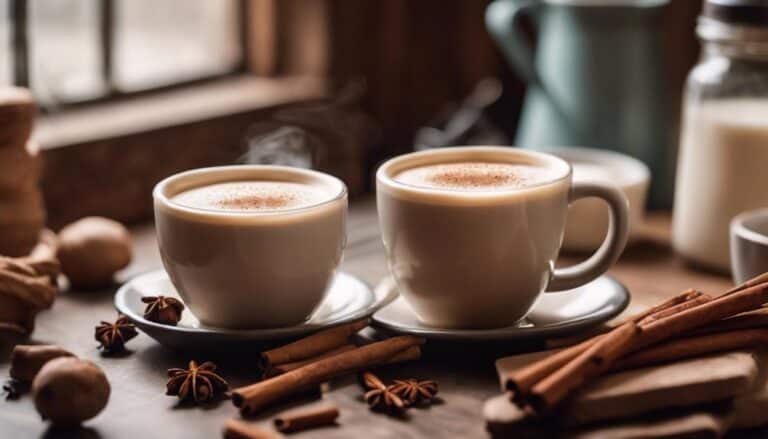Which Tea Has the Highest Caffeine Content?
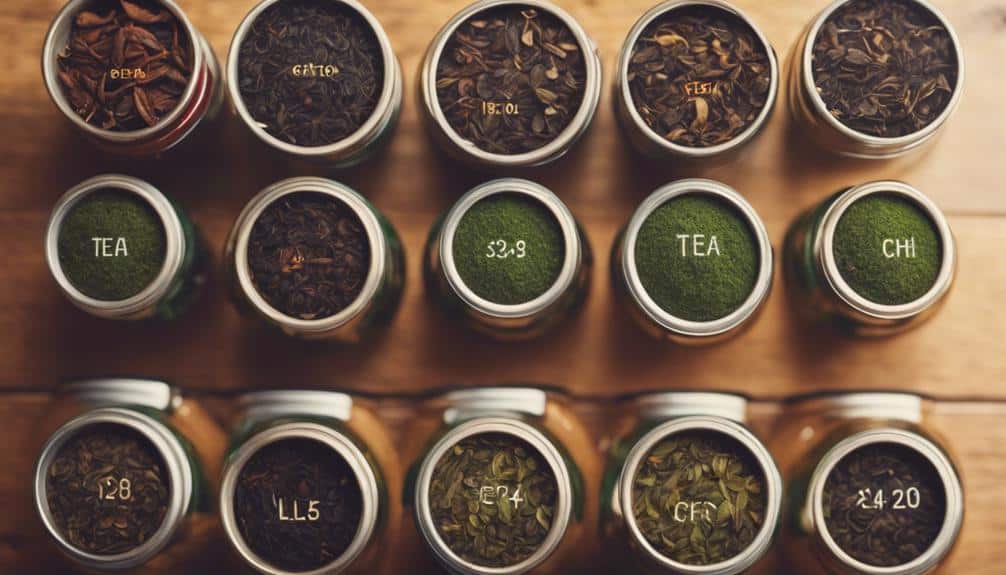
As I started exploring the world of tea, I found myself intrigued by the question of which tea boasts the highest caffeine content. The answer might not be as straightforward as one would think, with various types of tea offering different caffeine levels. Join me as we investigate the fascinating world of caffeinated teas, uncovering surprising facts and insights that might just change your tea-drinking habits forever.
Black Tea: The Caffeine Powerhouse
Being the caffeine powerhouse among teas, black tea boasts higher caffeine levels than its green, white, and oolong counterparts. The caffeine content in black tea can vary depending on factors such as the type of tea leaves used, processing methods, and brewing techniques.
On average, an 8-ounce cup of black tea contains around 40-70 milligrams of caffeine, making it a moderate source of energy. Popular high-caffeine black tea varieties like Assam, Ceylon, and Darjeeling are favored for their robust flavors and stimulating effects.
Due to its relatively higher caffeine content, black tea is often the tea of choice for individuals looking for a stronger pick-me-up or a morning energy boost. So, if you're seeking a cup of tea that packs a caffeinated punch, black tea might just be the perfect choice to kickstart your day with its invigorating properties.
Green Tea: Surprising Caffeine Levels
Green tea surprises with its varying caffeine levels, offering some varieties with unexpectedly high concentrations. Matcha, a powdered green tea, stands out for its high caffeine content compared to traditional green teas. Additionally, shaded green teas like Gyokuro and Kabusecha, which are grown under cover before harvesting, boast exceptionally high caffeine levels. A cup of matcha tea can contain around 75mg of caffeine, providing a potent energy boost. Shaded green teas from Japan are renowned for their rich flavor profiles and elevated caffeine levels. Generally, green teas that are shade-grown or consumed as whole leaves tend to have higher caffeine concentrations. Below is a comparison table showcasing the caffeine content of different types of green teas:
| Green Tea Type | Caffeine Content |
|---|---|
| Matcha | High |
| Gyokuro | Very High |
| Kabusecha | Very High |
| Traditional Green Teas | Moderate |
Oolong Tea: Moderate Caffeine Content
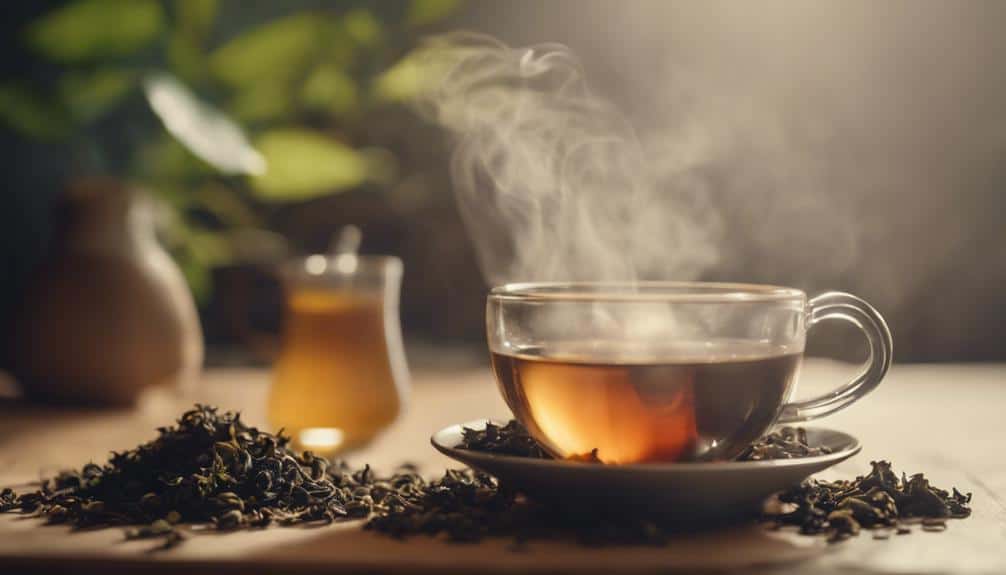
Oolong tea, situated midway black and green teas with regards to caffeine content, offers a balanced and moderate level of this stimulating compound. With caffeine levels typically ranging from 30-50 mg per 8 oz cup, oolong tea provides a gentle energy boost that enhances mental alertness and focus without the potential jitteriness associated with high-caffeine black teas. The moderate caffeine content in oolong tea makes it an excellent choice for boosting productivity and concentration throughout the day.
Due to its versatile nature, oolong tea is favored by many individuals seeking a milder yet effective source of energy. Whether you need a slight pick-me-up in the morning or a concentration aid during work hours, oolong tea can cater to various needs without overwhelming the system. Its ability to promote mental clarity and alertness while offering a moderate caffeine kick makes oolong tea a well-rounded option for those looking to balance productivity and a sense of well-being.
White Tea: Delicate Yet Energizing
Derived from the buds and young first leaf tips of the tea plant, white tea is renowned for its delicate flavor profile and higher caffeine content compared to other tea varieties.
Here are some key points about white tea:
- Higher Caffeine Content: White tea is considered to have a higher caffeine content compared to other types of tea, providing a natural energy boost that can help kickstart your day.
- Factors Affecting Caffeine Levels: The caffeine levels in white tea can vary based on factors such as the tea bush type (assamica vs. sinensis) and the nitrogen fertilizer content used during cultivation, influencing the overall stimulant effect.
- Minimal Processing: White tea undergoes minimal processing, maintaining its natural caffeine content and antioxidants. This preservation enhances its invigorating and stimulating qualities.
- Invigorating Taste: Enjoyed for its light and airy taste, white tea offers a crisp and invigorating alternative for those seeking a moderate caffeine kick, making it a perfect choice for a midday pick-me-up.
Herbal Teas: Caffeine-Free Options
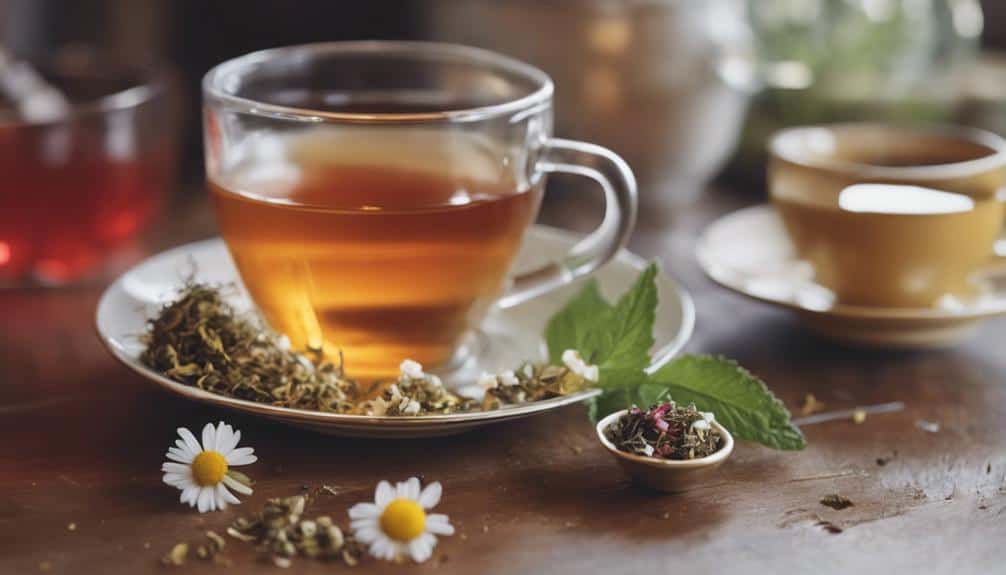
When exploring caffeine-free options, herbal teas such as rooibos, hibiscus, chamomile, and turmeric emerge as popular choices. These herbal teas not only offer a comforting and soothing experience but also provide various health benefits.
Peppermint and ginger herbal teas, for instance, are caffeine-free options known for aiding digestion and providing relief from nausea. Hibiscus tea stands out with its vibrant color and tart flavor, making it an invigorating choice without the stimulation of caffeine.
Chamomile and turmeric herbal teas are favored for their relaxation properties and anti-inflammatory effects, offering a calming experience without the jitters. Rooibos tea, another caffeine-free herbal option, is rich in antioxidants that may help support heart health.
Whether seeking a moment of tranquility or looking to reap the benefits of antioxidants, these herbal teas present a delightful way to unwind and care for your well-being.
Conclusion
To sum up, black tea stands out as the clear winner when it comes to caffeine content among different types of tea. With varieties like Assam, Ceylon, and Darjeeling containing 40-70 milligrams of caffeine per 8-ounce cup, black tea is a great choice for those looking for a strong pick-me-up.
While green tea, oolong tea, white tea, and herbal teas offer their own unique benefits, black tea remains the caffeine powerhouse for those seeking a morning energy boost.

